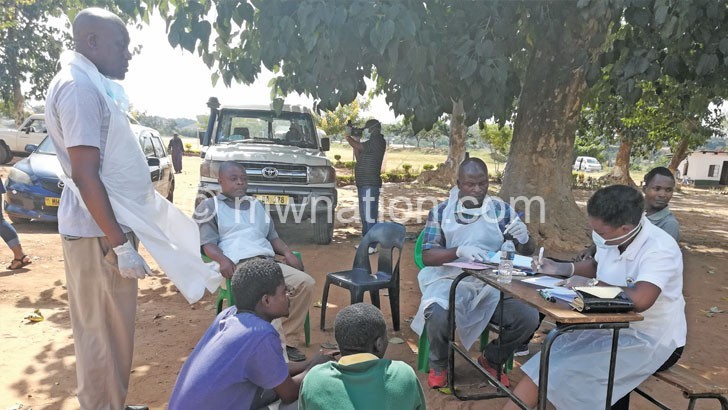Covid-19 initiative frees 1 392 prisoners
About 1 392 inmates have walked to freedom from the country’s congested prisons courtesy of an initiative funded by the European Union (EU) to fast-track the review of some prisoners’ cases and decongest the facilities amid the coronavirus (Covid-19) pandemic.
The release of the prisoners under the Chilungamo (Justice and Accountability) Programme follows camp courts, prison inspections and screening of the critically ill inmates which has seen those who could have been released later this year walking to freedom earlier last week.

E U t e a m l e a d e r Chilungamo (Justice and Accountability) Programme Sophie Racine said in a statement that as an institution, they are delighted with the progress registered in the programme to decongest the country’s prisons amid Covid-19.
She said: “These activities happen in normal time, but Chilungamo is happy to make this extra effort now to ensure that we protect the lives of the prisoners [by] adopting extraordinary measures to address the threat of Covid-19.
“This is why there are so many activities taking place at the same time such as camp courts, prison inspections and screening the critically ill
in prisons. Decongesting Malawi prisons is extremely important at this point, more than ever before.”
Racine, whose institution has allocated K55 million for the exercise, said the EU is impressed with the coordination among the beneficiary institutions such the Judiciary, Prisons, Legal Aid Bureau, Malawi Police Service, Ministry of Justice and Constitutional Affairs and the Paralegal Advisory Services.
She said it is important that everyone in the country plays their part to curtail further, spread of the coronavirus.
As of Saturday, Maula Prison in Lilongwe had released 581 prisoners identified through the programme based on varied reasons.
One inmate, Mwayi Majidu, 26, from Lilongwe, who was imprisoned at the facility for swindling funds out the institution she worked for, said she was excited to be released.
She said was serving her sentence since September 7 2018 and was due for release in September this year.
Majidu said she is now a changed woman and pleaded with society to welcome her as a reformed human being.
An o t h e r i n m a t e , Issa Bwanali, 55, from Nkhotakota District, said life in prison was hard. He said the situation was worsened by inadequate dietary needs and sleeping space that facilitated easy transmission of diseases.
He was serving a sentence for robbery since 2016 and was due for release in December this year.
In an interview, Maula Prison station officer Ibrahim Sinde, while heaping praise on the Chilungamo Programme, confirmed that the release of the 581 inmates at the facility followed the prison inspectorate’s review of case files.
He said: “The release of these prisoners brings a huge positive impact to the prison in terms of sleeping space and food, among other needs.
“The population of Maula prison before the release of the 581 was 2 806, which is way above the recommended capacity of 1 200 prisoners. If we had a Covid-19 case today, the spread could be alarming in the prison.”
Last week, the Malawi Inspectorate of Prisons, a multi-partner grouping that assesses the welfare of inmates, proposed that half of the country’s 14 000 prisoners should walk to freedom to decongest prison cells in line with Covid-19 pandemic precautionary measures of social or physical distancing.
Prior to the release of the 1 392, Malawi prisons were home to 14 000 inmates against the design capcity of 5 500, according to Victor Chagunyuka Mhango, an inspectorate member and executive director of Centre for Human Rights, Education, Advice and Assistance (Chreaa).
During the inspectorate’s visit to Chichiri Prison in Blantyre last week, its chairperson Kenani Manda, a judge of the High Court of Malawi Commercial Division, said they were reviewing the prisoners’ files to identify those qualifying. He said inmates standing a chance to be released are those who have served a significant part of their sentences, have health problems and have transformed such that they will not be a threat to society.
According to the 2019 Inspectorate of Prisons Report, Malawi’s prisons’ population is at 260 percent higher than the design capacity.
President Peter Mutharika is also poised to pardon some prisoners as recommended by the prison authorities based on varied factors, including health, good behaviour and those about to finish serving their sentences





